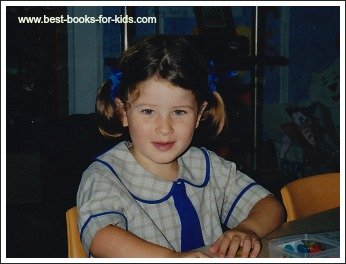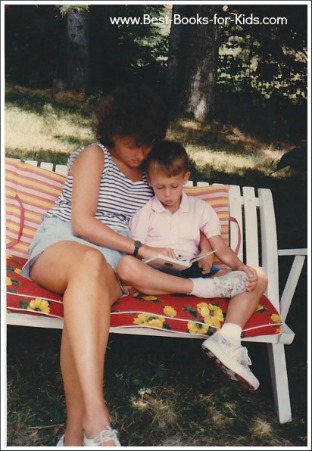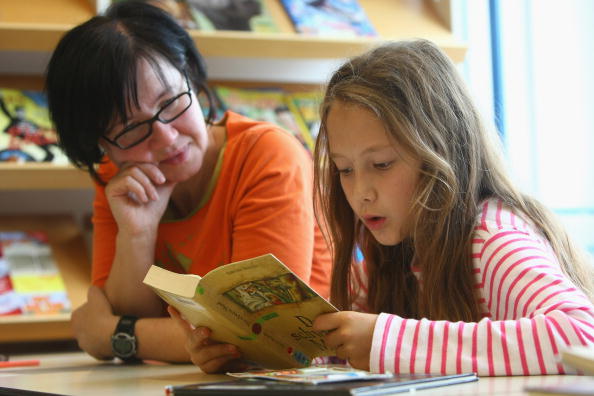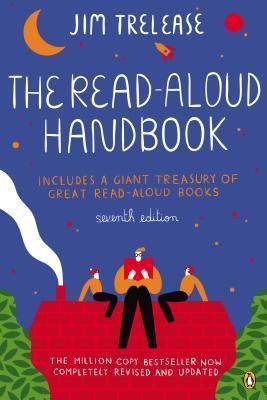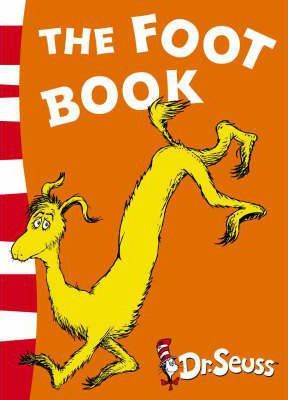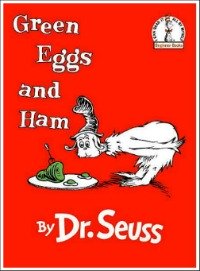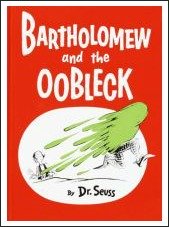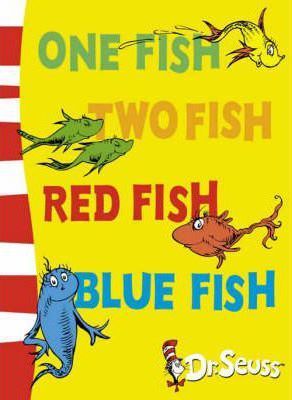You are here: home / struggling readers / reading help for kids
Reading Help For Kids
Most parents look to teachers when it comes to reading help for kids. But the truth is, however well-intentioned and caring teachers are (and the vast majority are very caring and absolutely have your child's interests at heart), teachers are time-poor and have 20 or more children, besides your child to teach.
If your child is a reluctant reader or
struggles with reading, the classroom teacher and the school's Learning Support team will be able to help however the very best way for a child to get the help he or she needs is for mum, dad or another caring adult to take an interest and to spend time with the child, every day if possible.
Yes, there are things you can do to help put your child on the path to becoming a capable, confident and enthusiastic reader and they're not difficult things to do.
All that's required is access to some good books (free from your local library) and the time and willingness to be with the child as she finds her way on her reading journey.
Does My Child Have a Reading Problem?
The first three years at school are pretty important when it comes to getting the hang of reading.
Not that kids can't learn to read or dramatically improve their reading after this but their confidence can suffer if they feel they're not reading as well as their classmates during the first two or three years.
If you’ve been told your child is having difficulties with reading or if you think there may be a problem, please don’t panic. While some children do learn to read easily with very little visible effort, many others experience problems at various points and pretty much all of these problems are fixable.
The key is to work out exactly what the problem is so your first step should be to make an appointment with your child’s class teacher.
Primary school teachers are trained to assess children’s reading, to diagnose specific problems and to work out strategies to overcome them. These assessments don’t take long and are pretty straightforward to do. Usually the teacher does them for all children in the class at various times during the school year to make sure they’re all on track. In Australia, teachers are required to do this and to keep running records to chart each child’s progress.
Reading and Oral Language
Reading is based on oral language. This sounds obvious but it's a basic fact that is often forgotten when we get into discussing the detail of how children learn to read.
And it's crucial that we keep this fact in mind when we talk about helping children learn to read because here's what it means in a nutshell: children whose oral language skills are well-developed will almost always learn to read easily and children whose language skills are not so well-developed will almost always struggle more than they should when they are learning to read.
What does this mean for parents? It means that regularly spending relaxed, one-on-one time with your child when you give him or her your warm, undivided attention (no smartphone in hand) and listen is crucial to your child's later reading ability. This warm, focused attention and the back-and-forth of conversation is the way children acquire language as babies and then build their language skills as they grow.
 Spending one-on-one time with your child helps develop oral language skills and knowledge about the world which will help her learn to read
Spending one-on-one time with your child helps develop oral language skills and knowledge about the world which will help her learn to readAs children grow, taking them out and about and experiencing the world together build their vocabulary and helps them acquire the background knowledge which will help them learn to read later on.
There is lots and lots of research around this and of course it makes intuitive sense: a child who knows lots of words is more likely to recognise them when he sees them written down. And a child who can relate what he reads to his own life experiences is more likely to understand and be able to make sense of what he reads.
So the very first - and easiest - thing you can do if your child needs help with reading is to commit to spending some focused time with him or her, doing something you both enjoy and having fun together. Ask your child questions about what he sees, thinks and feels, allow plenty of time for him to respond and make sure you really listen to his answers. Make space and time for your child to ask questions too and respond thoughtfully. Make lots of eye contact and enjoy your time together as you chat back and forth.
Types of Reading Problems
Reading difficulties fall into two broad categories:
- comprehension problems;
- decoding problems;
Children who have comprehension problems may be able to read very well but understand very little of what they read.
They have “cracked the alphabet code” so they can recognise or sound out even quite difficult words but they don’t know what many of them mean.
Children with decoding problems will be able to answer questions and tell you about what has been read to them but they either read very slowly or make many mistakes or both when they’re asked to read themselves. These kids will also have problems with comprehension.
Kids do many activities at school around comprehension and decoding so your child’s teacher should be able to either reassure you about your child’s progress or explain what the problem is and what needs to be done to address it.
Helping Your Child at Home
With both comprehension and decoding problems, there's a lot parents can do so do ask the teacher to tell you how you can help. The teacher will probably send home some special homework every day for you to do with your child and it's important that you do this.
But if your child doesn't seem to be getting any assistance or if you simply want to do more to support your child's reading, here are a few ideas to try.
Helping with Comprehension Problems
If a child can read quite fluently, seems to recognise a lot of words by sight and can sound out unfamiliar words fairly capably, it may not be obvious that he doesn’t understand many of the words. This is easy to check and correct if you read regularly with your child and if you listen to him read to you. I know it can be hard to find the time to do this, particularly if you have other children, but it really is worth putting the time in now to avoid problems later.
Your child will be doing work at school aimed at building his vocabulary and comprehension skills but here are some ideas you can work on at home:
- If your child brings home a school reader, don’t just listen to him read it through. Get him to pause every now and then to talk about what he’s read so you can check he’s understood it. Pick out a few of the more complex or unusual words and say something like: “Hmm, ‘recover’, that’s a hard word. I wonder if you can tell me what it means?” If he knows, great. If he doesn’t, you can explain it and then get him to read the sentence again.
- Look for opportunities every day to explain the meaning of words he might not know. You can do this even if you don’t have the written word in front of you. For example, if you go to the Maritime Museum (a great museum in Sydney), explain what the word ‘maritime’ means as you’re driving there. The first time your child sees it written down, he’ll not only be able to sound the word out, he’ll also understand what it means.
- Continue to read aloud to your child, every night if possible.
Many parents think they have to stop reading aloud to their child once he or she can read independently but there’s no good reason for doing this and many great reasons to keep going! Reading aloud to older children has loads of benefits, is great fun and helps to build children’s vocabularies and comprehension as you talk about the story and explain the meaning of new words.
Helping with Decoding Problems: Fluency
Some children are what teachers call ‘dys-fluent’ decoders. This basically means that they have reached an acceptable level of decoding ability for their age - so they can recognise and sound out words – but that they do this more slowly than they should. A teacher will be able to diagnose this problem by giving your child a timed reading test using a passage from a text at the appropriate level.
If this is the problem for your child, the solution is to get him excited about reading so he’ll want to read more. The more he practices, the more fluent and confident he’ll become! In addition to any school readers or other reading homework his teacher provides, I would suggest doing everything you can to immerse your child in reading. Here are a few ideas:
- get hold of some books you know will appeal to him and read them together.
Mix it up a bit here: choose some books he can easily read on his own, some more challenging books and other books that you
read aloud to him. Include some fiction and some non-fiction on any subject that appeals to him.
- look for opportunities to read when you’re out and about: signs, ads, headlines in newspapers, even the blurb on the cereal box at breakfast time!
- let your child listen to audio books sometimes, for a bit of variety. They’re a great way of getting kids motivated to read while also taking the pressure off for a bit.
- Allow your child to re-read favourite books as much as he wants. This helps with fluency too.
Helping with Decoding Problems: Word Recognition
A child who has problems sounding out words when he reads is fairly easy to spot. When you listen to him read, you will be able to see that he makes many errors and you’ll probably also find that he doesn’t recognise a word when he encounters it a second time, even after you have helped him sound it out or told him what it is.
If this is the problem for your child, he has probably not yet grasped some of the sound-letter correspondences he’s been taught at school. The best way to fix this is to work out exactly which letters and sounds are a problem and then to target those by re-teaching them and providing plenty of practice.
Your child’s teacher can administer an assessment designed to provide this sort of information. For example, a common problem for many children is the e at the end of a word which is silent but which changes the sound of the vowel which appears earlier in the word:
|
sit + e = site |
nap + e = nape |
Some children will pronounce the e and read site as if it were written city, kite as kitty and so on.
Your child’s teacher will probably provide homework to help your child work on the sounds and letters he’s having trouble with but you can also help by – yes, you guessed it! – continuing to read aloud to him and to listen to him read. Dr Seuss books are great for this. Don't worry if you think they're too easy: success breeds confidence and leads to more success. Have fun reading them together and follow your child's lead: if he wants to read a page, let him but don't put any pressure on him.
The same suggestions I made to help with fluency will also help with decoding problems with one addition: when you read aloud to your child, run your finger along under the words at least some of the time so he can follow the words. Do this particularly when you encounter words he has problems with. This kind of activity won’t replace the more targeted work your child’s teacher will probably give him but it will definitely help.
References:
Center, Y. (2005).
Beginning Reading. Sydney: Allen & Unwin.
Lyon, G.R. (2000). Why Some Children Have Difficulties Learning to Read. Retrieved 19 February 2018 from: http://www.readingrockets.org/article/why-some-children-have-difficulties-learning-read
